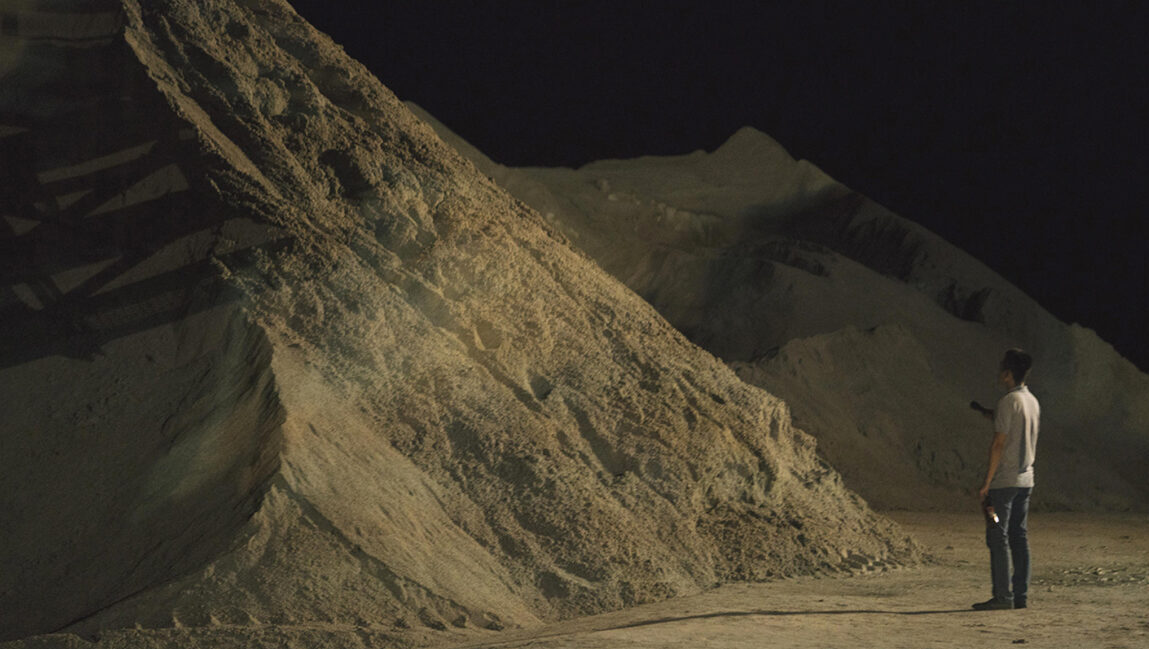Masquerade fails to clear even the lowest bar of a home invasion flick, delivering a late-film jolt that is far too little, too late.
Like many before her, actress Bella Thorne got her start as a Disney Channel star, appearing in the cringey television series Shake It Up with fellow thespian Zendaya. The resulting career paths of these two actresses, though, could hardly have been more divergent, with Zendaya going on to a number of massive projects including The Greatest Showman, Spider-Man, and the critically acclaimed HBO series Euphoria, while Thorne appeared in a few studio films before going the low-budget and indie route. But that’s not to say that Thorne is necessarily a bad actress; in a few of these projects, including 2017’s The Babysitter and 2020’s Infamous, she has demonstrated a welcome streak of self-awareness that imbues her performances with a nifty bit of meta-commentary on a career that has become defined by her social media presence. Then again, her public persona also lends easily to an argument that her driving motivation might be simple fame thirst, which could be part of her career problem, agreeing to appear in any DTV-level shlock that offers enough speaking lines. But this is mere perception, and as she has proven time and again, she is smarter than that, and deserves better consideration.
That said, the actress’ latest film, home invasion thriller Masquerade, is in no danger of winning accolades any time soon. Thorne seems as bored by the material as viewers are likely to be, delivering her lines as if the movie itself is playing at half-speed. There’s no sense of urgency here, which is a fairly remarkable feat given that the story itself hinges on a timetable of events. Thorne plays Rose — get it? — a server working a high-profile charity event thrown by wealthy art brokers Olivia (Mircea Monroe) and Daniel (Austin Nichols). Meanwhile, two individuals adorned head-to-toe in black break into the home of said brokers, where tween daughter Casey (Alyvia Alyn Lind) lies asleep. What unspools is a game of cat-and-mouse, as Casey attempts to hide from her captors throughout the sprawling estate, while mom and dad get a ride home from Rose, who may or may not be involved in the deadly proceedings. It takes 50 minutes before the couple finally make their way back home and events can at last converge, a seemingly endless amount of time in a film that is less than 80 minutes in total. More egregious, however, is its failure at geographic establishment. In home invasion flicks, it’s essential that the director explicitly map out the house’s layout, laying the groundwork so that viewers can acclimate before the action kicks in. Unfortunately, writer-director Shane Dax Taylor fails in even this most basic step, resulting in nothing but confusion once Casey’s night of terror begins.
But while this is certainly an anchor in Masquerade, it’s hardly the end of the film’s inanity. Casey’s two assailants wear fencing masks while giving chase, which does its job in helping them to conceal their identities, and their voices are also altered with a voice modulator. Thing is, the duo’s voices are normal when they take off their masks, which suggests that the fencing masks have built-in modulators, which has to be one of the stupidest, most underthought film details in a good minute. It’s also profoundly minor, to be sure, but it’s indicative of the level of care put into Masquerade, and as everything here plays out at such a deadly dull pace, the viewer is left with little to chew on beyond such trivial details; to be clear, there’s not a moment of tension to be found here, which is remarkable in its own way considering the genre. Taylor opts for jittery handheld camerawork that is supposed to imbue the proceedings with a healthy dose of immediacy, a predictable choice that instead only serves to highlight the generic filmmaking. In the film’s favor, it resists the trap of cheap jump scares, an always welcome development, and yet, at some points such theatrics begin to be missed, as they would have at least kept the viewer viscerally engaged, or at the very least, awake. If Masquerade does have one thing going for it — and that’s a big if — it manages to deliver a that rare third-act twist that actually surprises, one that forces the viewer to reconsider if everything they saw in the prior hour was truly that terrible. It’s not the most original rug-pull by any means, and maybe it works so well due to the catatonia the film’s early going lulls viewers into, but it’s still far more clever than one is expecting from a film of this character. It’s just too bad that the rest of Masquerade so utterly fails to surprise or impress. Thorne, meanwhile, soldiers on to the next project, undoubtedly hoping for better, deserving of better, as do us all.







